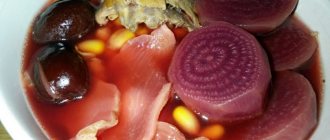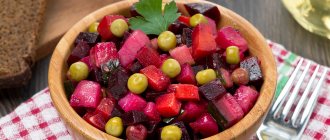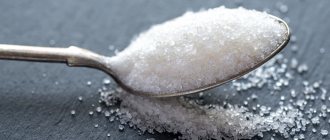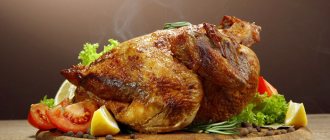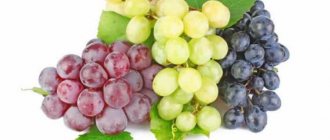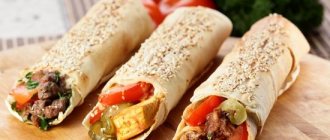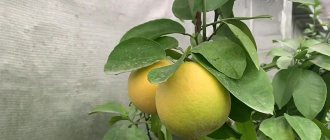Red beets are not a simple vegetable and are somewhat controversial. For, on the one hand, it is believed that this root vegetable has the power to heal a person even from the most terrible and merciless diseases in the world, and on the other hand, scientific research does not find anything supernatural in beets. Which gives reason to consider beets to be the most ordinary vegetable, not possessing even half of the healing properties that various healers and traditional healers attribute to it.
It is clear that the truth most likely lies somewhere in the middle. Therefore, we will have to experience the beneficial properties of red beets on our own health (if life forces us, of course). Or, if you’re lucky, you can see how beets help heal and restore the health of our close friends, relatives, neighbors and everyone who is ready to share their personal experience of treating this root vegetable.
A little history and interesting facts about beets
If we turn to history, we will find that in the Middle Ages, the Eastern Slavs sincerely believed: beets can protect the human body even from the plague! This belief was explained very simply - the plague epidemic never managed to “swallow” the peoples of Eastern Europe (who passionately loved beets), although in Western Europe the plague raged in full.
As we said above, modern researchers have not yet found in beets the miraculous properties that our ancestors endowed them with, but it is reliably known that this root vegetable contains substances that can effectively fight cancer cells. True, the vast majority of vegetables and fruits have anti-cancer properties, so beets cannot stand out with this fact.
The most interesting fact, in our opinion, is that beet tops on average contain twice as many useful substances as the root vegetable. Moreover, this applies not only to chard (leaf), but also to the most common table beet, which we use to prepare borscht, herring under a fur coat and other “red” dishes.
Hence the conclusion: fresh beet leaves should not be thrown away, but eaten as a salad, or in some other way...
By the way, this is exactly what people did in ancient times. At first, only wild plants were eaten, but a little later - around the second millennium BC - Swiss chard began to be cultivated. Well, for the sake of root crops, beets began to be grown only in the 4th century BC. (on the islands of the Mediterranean Sea).
Beet root crops came to Russian lands around the 10th century AD. In Western Europe, beets appeared three centuries later. Three centuries later, beets began to be divided into fodder and table beets, and in the 18th century, sugar beets were also separated.
Nowadays, beets are eaten everywhere, both by people and pets. And about a third of all sugar in the world is now produced from sugar beets.
Healthy fresh vegetable juices
Mixes of freshly squeezed juices of beetroot and other vegetables and fruits [5]:
- Beetroot-carrot-apple is the healthiest combination. Fresh juices are mixed in a ratio of 1:1:1. Drinking a vitamin drink will help avoid heart attack, stomach ulcers, lung cancer, hypertension, and abnormalities in the pancreas. To prepare it, peel the ingredients, chop them and puree them in a blender, leave to brew for two hours. The recommended course of treatment is three months.
- Beetroot-orange-carrot. The ratio of ingredients is 0.5:2:1, respectively. This combination reveals the beneficial properties and taste of each product. Vitamin C contained in orange promotes the absorption of iron concentrated in beet pulp. And carrots are a natural source of beta-carotene, a natural antioxidant. Peel all ingredients, beat with a blender, add 50 ml of water. It is recommended to drink fresh juice between meals.
- Beetroot-cranberry with honey. This combination cleanses the kidneys and liver, relieves vascular spasms, reduces blood pressure, relaxes, and has a calming effect. The ratio of cranberry and beet juices is 1:2. To enhance the positive effect on the body, add 15 ml of honey to the vitamin composition. Before drinking, dilute the juice with 50 ml of water.
- Beetroot-kefir. It is a fat-burning drink that contains a minimum of calories and a maximum of nutrients. Fermented milk-vegetable cocktail reduces appetite, has a diuretic and laxative effect, cleanses the liver and intestines, and improves metabolic processes. The ratio of raw beets and biokefir 1% is 1:1. If desired, you can add 100 ml of mineral water to the drink.
It is recommended to take 150-200 ml of fresh juice several times a day. The course of treatment depends on the etiology of the disease and varies from 30 to 120 days.
Healthy combinations of freshly squeezed juices [5]:
- To reduce hangover and restore strength after illness: orange + carrots + beets + apple.
- For weight loss: grapefruit + cucumber + plum + beets + carrots + celery.
- To increase hemoglobin and eliminate anemia: carrots + beets
- To improve performance: spinach + apple + dill + beets + carrots.
- To improve food digestion: carrots + apple + beets + ginger.
- To eliminate heartburn: carrots + celery + cucumber + beets + cabbage + banana.
- To cleanse the liver: pineapple + lime + beets + carrots.
- To soften the stones: radish + beets.
- To cleanse the gallbladder: celery + carrots + cherries + beets + cucumber + radish.
- To improve liver function: radish + carrots + beets.
- To restore strength to cancer patients: beets + potatoes + apple + carrots.
Remember: due to the high concentration of nutrients, freshly squeezed juices have a powerful effect. Therefore, they should be taken in doses, no more than 200 ml at a time, otherwise, instead of a positive effect, you can harm your health by exacerbating chronic diseases of the digestive and excretory systems.
Chemical composition of beets
The chemical composition of beets greatly depends on the fertility of the soil in which they grew. Which cannot but affect the results of research on this root vegetable published in the scientific community...
So, for example, some scientists claim that the chemical composition of red beets contains practically no microelements, but there is quite a lot of folic acid, while others say that beets are full of chromium, molybdenum, vanadium and other micronutrients, but there is practically no folic acid.
Moreover, the amount of macroelements (calcium, potassium, phosphorus, sodium, magnesium), as well as B vitamins, is almost identical in all studies.
| Magnitude | Quantity per 100 grams |
| Beet calories | 42 kcal |
| Fats | 0.1 gram |
| Squirrels | 1.5 grams |
| Water | 86 grams |
| Alimentary fiber | 2.5 grams |
| Organic acids | 0.1 gram |
| Mono- and disaccharides | 8.7 grams |
| Vitamins | A, B1, B2, B5, B6, B9, C, E, PP, Beta-carotene |
| Minerals | Potassium (288 mg.), Calcium (22 mg.), Magnesium (46 mg.), Sodium (46 mg.), Phosphorus (43 mg.), Iron (1.4 mg.). |
Where does this leave us? To one of two:
1) you can choose the results of the study you like most and be guided by them in life
2) or take into account the similarities and completely ignore controversial indicators, and also observe your feelings when eating beets
You can also turn to traditional medicine, but this option is somewhat out of line with the “scientific” approach to evaluating beets. Therefore, we will not recommend it. Although, perhaps this is what will help you in the end...
Calorie content of beets (boiled and raw)
Separately, I would like to talk about the calorie content of beets. Because there are some features that everyone who monitors their weight and blood sugar levels should know...
Let's start with the fact that boiled beets stimulate the appetite, but raw ones do not. Why? Yes, because the glycemic index of beets (the ability to increase blood sugar) increases greatly during heat treatment. If we express this in numbers, we get the following picture:
- glycemic index of raw beets – about 30
- glycemic index of boiled beets – about 65
- Swiss chard is completely harmless in this regard, since its glycemic index is approximately 15
As a result, some nutritionists believe that boiled beets greatly increase blood sugar levels and are therefore contraindicated for people with diabetes. However, this is not quite true. After all, the calorie content of boiled beets is only 44 kcal per 100 grams (raw - 42 kcal), and not everyone can eat more than 150-200 grams of boiled beets in one sitting.
In addition, no matter how many calories are in boiled beets, and what its glycemic index is, it should be borne in mind that in cooking, beets are almost always mixed with vegetable oil, high-protein foods or unsweetened vegetables. Therefore, any dish with red beets has a low glycemic index and practically does not affect blood sugar levels.
Red beets: benefits and harm. What more?
Looking ahead a little, let's say that there are clearly more beneficial properties in red beets than harm. However, there are still some contraindications to normal consumption of beets (more on them below). Now let’s talk in more detail about the benefits and harms of beets...
The scientifically proven benefits of beets for the body are as follows:
- beets increase hemoglobin, although not with the help of iron, but with the help of substances involved in the production of hemoglobin (copper, vitamin B1)
- cleanses blood vessels from “bad” cholesterol, thereby preventing and curing atherosclerosis (with long-term regular use)
- strengthens the walls of capillaries and at the same time increases their elasticity
- dilates blood vessels, thereby lowering blood pressure (note to hypertensive patients)
- easily removes excess water from the body (relieves swelling)
- reduces the risk of prostate adenoma and rectal cancer
- has a laxative effect (increases peristalsis of the gastrointestinal tract), however, it should be borne in mind that beets help against constipation only when a person drinks a sufficient amount of liquid
- adsorbs and removes waste and toxins from the body
- regulates lipid metabolism (protects the liver from obesity)
- reduces the body’s recovery time after physical and mental stress, and also increases a person’s endurance (albeit slightly)
- stimulates brain function, thereby “pushing back” its premature aging and drying out
As you can see, the list of beneficial properties of red beets is very long. However, it should be noted that raw and boiled beets have different effects on the body.
What is the difference?
Let's figure it out. What are the benefits of raw beets?
In general, the beneficial properties of raw beets coincide with the list above. However, there is something special about it:
1) raw beets retain all vitamins
2) raw fiber has twice the “penetrating” and adsorbing power
3) low glycemic index (but we already wrote about this)
On the other hand, there is an opinion that fresh beet juice contains some harmful compounds that can harm human health. In this regard, it is even recommended to leave freshly squeezed beet juice for several hours (to give time for harmful substances to evaporate). In fact, the faster you eat raw beets (drink juice), the more vitamins will remain in them. For vitamins are destroyed not only under the influence of high temperature, but also from contact with air, light and water.
And the “harm” of freshly squeezed beet juice lies in its ability to trigger an emergency cleansing of the body (destruction of fat deposits with the inevitable release of toxins into the blood).
What are the benefits of boiled beets?
The benefits of boiled beets for the body, despite the high glycemic index, are undeniable. Moreover, in some respects, boiled beets are even healthier than raw ones. After all, during cooking, only three vitamins are mainly destroyed: C, B5 and B9 (folic acid). The remaining vitamins and minerals reach the human stomach practically intact.
On top of that, all the valuable components of beets, which are not destroyed by high temperature, become more accessible to our body (due to the partial destruction of the fiber structure).
And one more thing... boiled beets contain much less nitrates than raw ones. Because the lion's share of them is destroyed when heated or turns into a decoction.
Now you know how beets are useful and whether it is worth boiling them before eating. Let's look at the contraindications...
Use in folk medicine
Beet roots have medicinal properties: they improve blood composition, fight ulcers and tumors, high blood pressure, scurvy, liver diseases, constipation, anemia, varicose veins, and thrombophlebitis.
Folk recipes for eliminating ailments [11]:
From a runny nose. Mix 50 ml of freshly squeezed beet juice with 25 ml of honey. Apply 2-3 drops of the resulting mixture to each nostril several times a day.- For oncology. During the day you need to drink half a glass of beet juice several times a day 15 minutes before meals.
- For cholelithiasis. Grate the beet roots, fill them with water so that the liquid covers the pulp of the vegetable, and put on fire. Boil the broth until thick. Strain the finished syrup, take 100 ml daily 30 minutes before meals several times a day.
- With high blood pressure. Dilute beet juice with honey in a 1:1 ratio. Drink a vitamin drink half a glass 3-4 times a day before meals.
- For sore throat. Add 15 ml of apple cider vinegar to 200 ml of beet juice. Gargle with the resulting mixture (taking a sip) 3-4 times a day for five days until the symptoms disappear.
- To cleanse the intestines. To prepare a beet drink, peel and cut five root vegetables (medium size) into large slices, pour 3 liters of warm water over them. Leave for 24 hours, then add 50 ml of honey to the beets, stir until dissolved, strain. In addition to cleansing the intestines and removing toxins from the body, this remedy accelerates metabolism, the breakdown of fats, quenches excessive appetite, and promotes weight loss.
- For anemia. Mix juices from raw beets, carrots and radishes in equal quantities. Take 15 ml before meals three times a day. It is recommended to store the tincture in a dark, uncapped glass bottle.
Beetroot has extraordinary benefits during pregnancy. The vitamins, macro- and microelements that make up the root vegetable contribute to the formation of a healthy nervous system for the baby. In addition, it effectively combats constipation, which often occurs in women during pregnancy. Due to the abundance of iron, the scarlet vegetable helps restore blood loss and counteracts the development of anemia in a woman after childbirth.
Harm of beets and contraindications to its consumption
The usefulness of beets is questioned only in a few cases:
- for chronic diarrhea (has a laxative effect)
- for hypotension (low blood pressure)
- for urolithiasis (contains oxalic acid), despite the fact that some advise using beets to destroy kidney stones
In addition, it should be said separately about the harm of raw beets: for gastritis and ulcers in the gastrointestinal tract, this root vegetable will irritate already weakened mucous membranes (due to the abundance of coarse fiber).
We have already talked about the dangers of boiled beets - if consumed in moderation, it whets the appetite and sharply raises blood sugar levels (if consumed without oil or separately from high-protein foods and other unsweetened vegetables).
Contraindications and side effects of eating beets
Beets are generally well tolerated by most people. However, there are some contraindications for eating beets:
1. Beets are not recommended for people who are prone to forming kidney stones. Beets can contain high levels of oxalates, which can contribute to the formation of kidney stones.
Oxalates may also have anti-nutritional properties. This means they can interfere with the absorption of vitamins and minerals. Oxalate levels are significantly higher in beet leaves than in the root vegetable, but the vegetable itself also contains some oxalates.
2. A contraindication for consuming beets is the presence of irritable bowel syndrome and other chronic or acute intestinal disorders.
Beets contain FODMAPs carbohydrates in the form of fructans. They are short-chain carbohydrates that feed gut bacteria. FODMAPs can cause unpleasant digestive problems in people with irritable bowel syndrome.
Eating beets may also cause your urine to turn pink or red, which is a completely harmless side effect, although it often scares a lot of people.
Beets are generally well tolerated, but they contain oxalates and FODMAP carbohydrates, which can cause problems in some people.
Beetroot during pregnancy and breastfeeding
Can pregnant women eat beets? Yes, but provided that the woman has normal or high blood pressure. People with hypotension should eat beets with caution.
It should be understood that beets can bring tangible benefits during breastfeeding and pregnancy. And not in the distant future, but right the next day. After all, many pregnant women experience chronic constipation (especially while taking iron supplements), and beets with their coarse fiber will be very helpful here.
If the beets also grew in fertile soil, then in addition to everything else, they will provide the woman’s body with vital, but rarely remembered micronutrients (molybdenum, boron, chromium, cobalt, vanadium, etc.). The influence of these elements on the health of pregnant and lactating women is very great, because they are involved in hundreds of processes in the body.
And, of course, all these “rare” microelements enter the body of babies who feed on the “vital juices” of future and existing mothers.
Beneficial features
In ancient times, people used only beet leaves with petioles, the so-called tops, for food, and only over time they realized that the maximum benefit can be obtained from eating root vegetables. They learned to boil, stew and bake, and use them as a main or additional ingredient in various dishes.
The benefits of the vegetable can hardly be overestimated, because beet has a beneficial effect on the functioning of almost all internal organs and systems of a person:
- stimulates the body's defenses and increases resistance to viral and bacterial infections;
- improves the functioning of the heart and blood vessels;
- participates in the process of hematopoiesis - increases hemoglobin, prevents the development of anemia;
- normalizes metabolic processes;
- lowers blood pressure;
- treats runny nose;
- serves as a means of preventing benign and malignant neoplasms;
- facilitates the condition of patients during radiation and chemotherapy;
- accelerates the elimination of toxins, free radicals and other harmful substances;
- stimulates the secretion of gastric juice;
- improves the functioning of the digestive system;
- prevents the development of atherosclerosis;
- enhances libido and increases potency in men;
- improves the general well-being of women during menstruation;
- has a mild laxative effect and helps with constipation;
- relieves inflammation on the skin and mucous membranes of internal organs;
- promotes cell rejuvenation and prevents premature aging.
When can you give beets to a child?
There is constant debate about the age at which children can be given beets. Young mothers have doubts, caring grandmothers easily give advice (based on their own experience and understanding), and children... children treat red beets differently: some love them, others don’t even want to look at beets. In general, everything is as usual. Therefore, let's turn on logic, a scientific approach and knowledge about the chemical composition of beets and sort this out once and for all.
So, when to introduce beets into complementary foods? Ideally, after six months of age. Until this time, only breast milk or high-quality formulas. Can a one-year-old child eat beets? Naturally! But on one condition: the child should not be allergic to beets (start with a few grams of beets). Well, of course, you shouldn’t push beets into a child by force. No matter how useful you may find it.
Losing weight with beets. Is it possible to?
While some still doubt whether it is possible to eat raw beets, the most motivated women are already trying out all sorts of beet diets. And for good reason. After all, the benefits of beets for weight loss are enormous!
Red beets contain a large number of substances that literally destroy fat in the human body, namely:
- betaine
- fiber
Thanks to these components, losing weight with beets is quick and painless, because betaine greatly accelerates metabolism (thus provoking the conversion of fat cells into energy), and fiber removes all excess from the intestines.
At the same time, boiled beets for weight loss are almost as effective as raw ones. The main thing is not to mix beets with mayonnaise, fatty fish (meat) and excessive amounts of vegetable oils. Because these products nullify almost all of the “weight-loss” effect of beets. Naturally, beet salad is not tasty to eat without any oil. However, be careful...
Beetroot diet for weight loss
The root vegetable contains betaine, which normalizes fat metabolism, cleanses the body of toxins, regulates liver function, and fights excess weight. In addition, the substance improves the absorption of protein foods, resulting in a feeling of fullness coming faster. Under the influence of sunlight and high temperatures, betaine is destroyed, so it is recommended to consume beets raw. You can use it to prepare vitamin salads, fresh juices, and smoothies. The darker the color of the root vegetable, the more betaine it contains.
To get rid of several kilograms, do beet fasting days once a week. During the day, you are allowed to consume only this root vegetable (raw or boiled) in quantities up to 2 kg and drink 2–3 liters of non-carbonated purified water.
If it is necessary to eliminate extra 5 kg, it is recommended to pay attention to a beetroot mono-diet for up to 10 days.
Rules of the weight loss technique:
- Eat baked or boiled beets daily in six meals, no more than 2 kg of vegetables per day.
- To diversify your diet, prepare a salad: grate the raw root vegetable, add 5 ml of olive oil (lemon juice). Vegetables must not be salted. To improve the taste, add spices to the salad that stimulate fat burning: ginger, cardamom, cinnamon, cayenne or black pepper, anise, turmeric, horseradish. However, do not overuse them so as not to irritate the gastric mucosa.
- Drink more liquids: green tea, still water, fresh juices from grapefruit, apples, carrots, beet kvass.
To maintain the results, exit the diet carefully: increase the number of calories gradually, limit the consumption of confectionery and flour products, alcoholic beverages, fatty sausages and meat. Focus on fruits, vegetables and greens.
Beet cooking time
Average cooking time for beets until tender in different containers:
- In a saucepan – 60-120 minutes
- In a double boiler – 30-90 minutes
- Microwave – 10-30 minutes
- In a slow cooker – 30-90 minutes
- In a pressure cooker – 10-30 minutes
You should also understand that the cooking time for beets directly depends on the size and age of the root crop, as well as on your preferences for the softness of the product. Particularly large or old root vegetables may take longer to cook than the specified time frame.
Beet storage
How long do boiled beets last? In the refrigerator, the shelf life of boiled beets is usually at least 72 hours (and generally up to a week). At room temperature, it will begin to deteriorate within 24 hours.
How to store beets in the refrigerator? In a vegetable drawer without tops, beets can easily be stored for several weeks.
Is it possible to freeze beets? It definitely makes sense to freeze boiled beets. After all, if now you have time to cook, but next time you may not have it, then why not use the “services” of the freezer? But it is better to store raw beets in the cellar for long-term storage.
How to preserve beets in winter? The ideal option is to store beets in the cellar (in sand or sawdust). The optimal storage temperature for beets is 1-4 °C. Relative humidity of the surrounding air is not lower than 90%. At the same time, there should be minimal ventilation in the basement.
